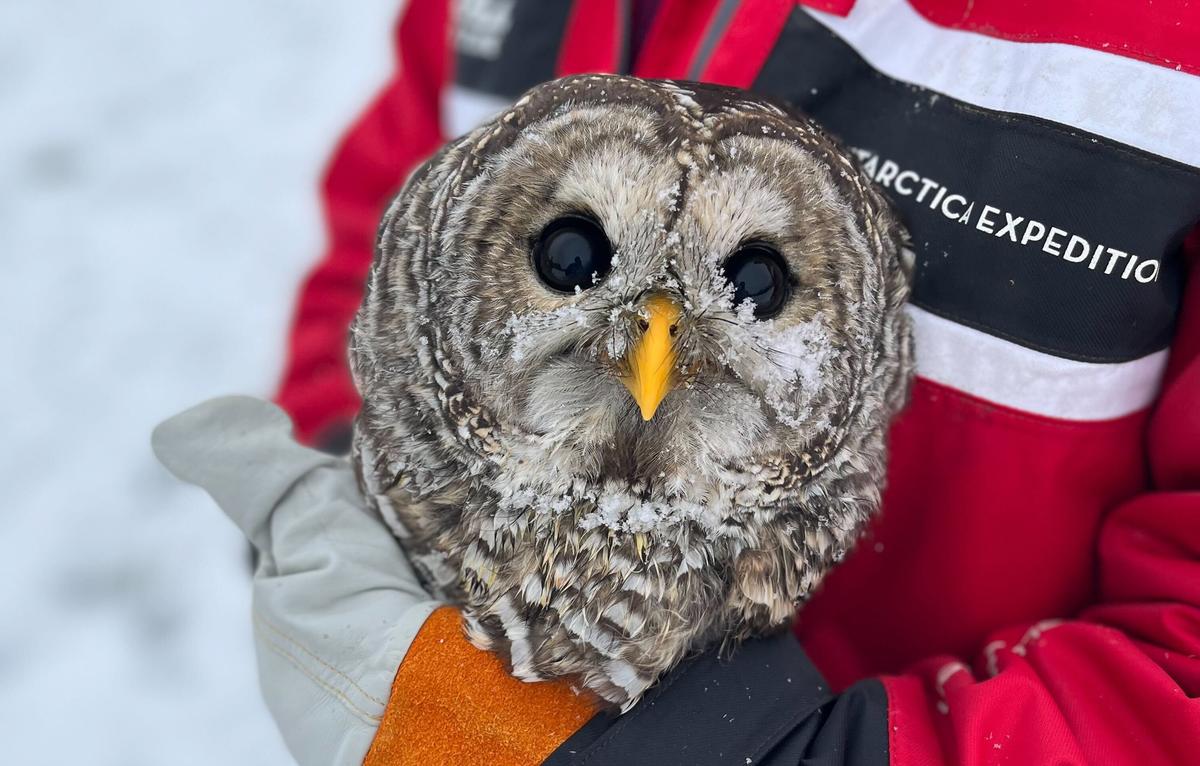
Why do birds migrate south for the winter? Most people will say that it is cold here in the winter, so birds want to move south to where it is warmer. That is actually why people go south for the winter, but it is not the reason bird’s move south.
So why do birds migrate? Why do some only move partially (called partial migrants)? Why do others stay all winter here in Minnesota? Believe it or not, some birds fly south TO Minnesota to overwinter!
If a bird can get enough food and employ a few strategies to help stay warm, it can do very well in Minnesota in the cold and snow. And, there are several strategies out there for surviving a Minnesota winter if you are a bird.
For example, if you are a black-capped chickadee (not a raptor, but bear with me) you stay in your family group from the summer. This helps you find food---more eyes out there to look for seeds and even some insects. At night, the entire family finds a tree cavity and nestles in. You also lower your core body temperature, wasting less energy overnight when you cannot feed. During the day, chickadees eat almost their weight in food to make it through the next night. Woodpeckers will eat seeds, suet at our feeders, and can still find insects in the trees for a high protein meal. They also roost in tree cavities at night. During the day, most passerines are looking for food almost constantly.
All birds have feathers. This is a built-in insulation system. Birds in the winter often seem “fatter”as they move around or perch on a branch. Birds fluff up their feathers to trap air between them. This allows for the bird to keep warm just as people do in down coats.
So what do raptors do in the wintertime? Just like other birds, some stay, some move partially and some migrate to places like the rainforest. Osprey, an exclusively fish-eating raptor, leaves Minnesota at the end of the summer and heads to Central and South America to fish the rivers and lakes in the rainforests. Local bald eagles, also fish-eating raptors, may spend the winter here, and are joined by bald eagles from Canada! They can hunt fish, waterfowl that also need open water, and also scavenge on carrion (animals already dead). Raptors do not have to eat quite as often as seed-eating passerines because their all-protein meal packs a lot of nutrition and energy.
Peregrine falcons just eat other birds. So most peregrine falcons “follow” birds and fly to southern climes for the winter. However, some peregrines, especially in urban environments, have enough choices with local birds, like rock pigeons, that they stay all winter and do not migrate.
Birds like rough-legged hawks spend their springs and summers living and breeding in the far northern parts of the Arctic. These amazing predators spend their winters in the lower 48 states including the northern states that see cold and snow.
Birds like great horned owls, really have winter living down. These birds often hunt rabbits, birds, squirrels - pretty much anything they think they can catch. Most are so good at this, that great horned owls are the earliest nesters in Minnesota. They start courtship in December and January and are often incubating eggs in February! With chicks often hatching in early March, the male owl has a lot of work catching enough food for the female and the newly hatched chicks. But, nesting this early gives them little competition for food as other raptors have not started nesting yet.
There are many ways to survive a Minnesota winter if you are a bird; you can leave altogether, come south TO Minnesota because there are more options for food here in the winter, or you can make a living by staying put. Whatever strategy is chosen, one thing is certain, it is all about the food.
So, as I reach for the second helping at my holiday dinner, to any raised eyebrows out there, I will just say that I am eating like a bird in winter in Minnesota.
References:
https://www.allaboutbirds.org/news/how-do-birds-survive-the-winter/
https://www.allaboutbirds.org/news/how-birds-survive-the-cold-feathers-food-warmth/
https://www.allaboutbirds.org/news/raptors-of-winter/
https://www.birdsandblooms.com/birding/how-birds-stay-warm-winter/